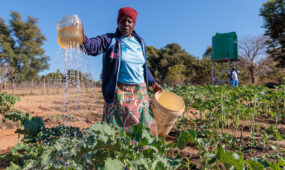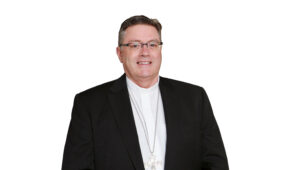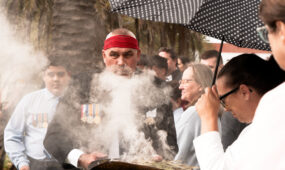Prostitution bill would increase exploitation of women: Bishop O'Kelly
News
South Australian Catholics have been warned that a proposed bill to decriminalise prostitution would increase the opportunity for further exploitation and trafficking of women.

While prostitution is currently legal in SA, brothels are not.The bill to decriminalise sex work, introduced by Ms Tammy Franks MLC, was debated in the Lower House of State Parliament today and a vote will be taken on November 13.
In a pastoral letter to the people of the Adelaide Archdiocese and Port Pirie Diocese, Bishop O’Kelly said making brothels legal increased their social acceptability, resulting in greater demand which would further the market for trafficking.
Advertisement
“The decriminalisation of brothels gives serious cause for concern about the possible increase in the trafficking of Asian women to Australia,” Bishop O’Kelly wrote.
“Social analysis statistics indicate the disproportionately high ratio of Asian women engaged in massage parlours.
“We know that in Australia very many women come to this country thinking their employment will be in the hospitality industry as waitresses and kitchen workers, and find they have been deceived and trapped into staffing brothels.
“The police need to be able to access brothels automatically and officially to ensure that human rights are not being violated.”
Bishop O’Kelly stressed that the status of all women was damaged if a law said they could be bought and sold for sex.
“This is contrary to any human dignity, gender equality, and the status of women,” he wrote.
“As committed Catholics we should have deep reservations about this proposed legislation.”
While he had no wish to see prostitutes classified as criminals, Bishop O’Kelly said if brothels were the police would lose automatic right of access to these institutions, and hence the brothel could well become subject to criminal control, owned and controlled by local or overseas criminals.
He said police had expressed concerns about the bill and Opposition Leader Peter Malinauskas was against it.
“It also opens the possibility of further exploitation of women because the protection currently afforded by the law will be removed,” he wrote.
“It takes a special sort of courage for a working prostitute to make a complaint about her treatment.
“Pimping, the practice of controlling prostitutes and arranging clients for them, receiving part of their earnings, is also decriminalised through this bill.
“The effect would be to increase the power of the exploiters of women and the consequent risks to their safety.”
Bishop O’Kelly pointed to countries such as Sweden, Norway, Iceland, Canada, Ireland and France where the client, usually male, can be charged for criminal activity when engaging a prostitute.
“The overseas experience has shown that this has resulted in significantly decreased exploitation and degradation for those engaged in prostitution,” he wrote.
Advertisement
“Under the present arrangement there is the extraordinary disparity that it is the woman not the man who gets arrested if trouble occurs. What an extraordinary and unjust bias.
“As Christians we have our own outlook on the immorality involved in this industry. The present public debate is not be about sexual morality but we should speak our concern to avoid increase in criminal ownership in the industry, and the further exploitation of women.”
Bishop O’Kelly urged Catholics to contact in person or by phone their local MP to register their objection to the bill.
The pastoral letter can be found at www.adelaide.catholic.org.au








Comments
Show comments Hide comments